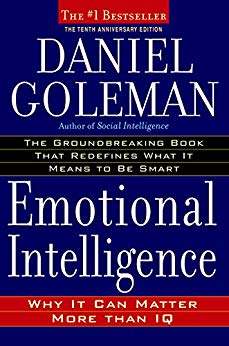

This article is an excerpt from the Shortform summary of "Emotional Intelligence" by Daniel Goleman. Shortform has the world's best summaries of books you should be reading.
Like this article? Sign up for a free trial here .
Our family is the first place we learn about emotions and how to handle them. Children learn not just through the things parents say, but the things they see parents do as well. This includes anger.
Learn how to manage anger in your children, and how to connect with them emotionally.
Parenting Styles for Anger Management
There are 3 common parenting styles that are harmful:
- 1) Ignoring feelings completely. This method leads children to believe emotions are inconveniences. These parents don’t use emotional moments as teaching moments, and they don’t usually develop closeness to their kids.
- 2) Being too accepting. These parents acknowledge their children’s emotions but don’t teach them acceptable and healthy ways of controlling their reactions to those emotions.
- 3) Treating emotions with contempt. These parents are harsh critics and disapprove of any emotional display. Ironically, they usually deal emotionally with their children, punishing out of anger and meeting emotional responses with bigger, more overwhelming emotional responses of their own.
We’ll look at 3 common issues parents face with their children–anger, depression, and eating disorders–and the danger of letting these issues go unmitigated.
Anger in Children
Angry kids usually become bullies who, incapable of handling their own emotional reactions, take their anger out on other children, leading to social isolation, disciplinary actions, and judgement from teachers.
Bullies are more likely to drop out of school and end up with criminal records, and they’re likely to pass their violence and aggression down to their kids–not only through genes but through nurturing and the environment of the household–which creates more bullies.
Bullies typically come from households where punishment is an emotion-based system. When parents are in a bad mood, the punishment for misbehaving is severe. When parents are in a good mood, the kids can do whatever they want without consequences. This volatility and lack of logic creates a kind of chaos that encourages letting emotions dictate one’s actions, violence and aggression as the primary ways of dealing with negative emotions, and a lack of boundaries.
Very often, bullies come from households of abuse or neglect. Abused children are more likely to abuse their own children, creating whole family lineages of abuse passed down through the generations. Abuse shatters trust in people and the world around them, and often makes the victims feel as though something about themselves caused the abuse, or that they deserve it for some reason. On the opposite end are households where parents emotionally neglect their children–and neglect can be more detrimental than abuse, some studies find.
Anger doesn’t always result in bullying–sometimes angry children are social outcasts, withdrawn and overreactive to perceived insults. This is the common tendency among angry kids, whether they’re bullies or not: angry children perceive threats or slights where they’re not intended–someone bumping into them accidentally in the hall, for example–and then lash out at those perceived threats, furthering their isolation. Most of these kids see themselves as victims who are merely acting in self-defense.
———End of Preview———

Like what you just read? Read the rest of the world's best summary of Daniel Coleman's "Emotional Intelligence: Why It Can Matter More than IQ" at Shortform . Learn the book's critical concepts in 20 minutes or less .
Here's what you'll find in our full Emotional Intelligence summary :
- What are emotions? Why do we have them?
- What is emotional intelligence? Why is it important?
- How do you manage your own emotions? Anger, anxiety, and sadness?
- How can you approach your relationships with more emotional intelligence?
- How can you teach your children emotional intelligence?
- How can emotional intelligence boost your career?






